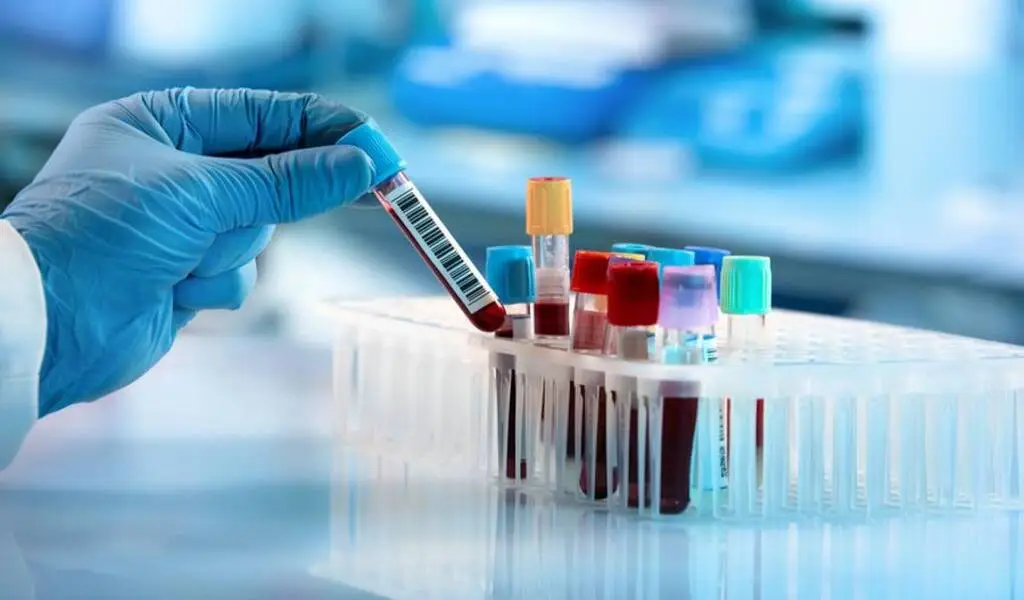Health
Understanding Blood Tests: Everything You Need To Know

(CTN NEWS) – Blood tests are essential to modern medicine, used to diagnose various conditions, monitor treatment progress, and assess overall health.
However, the terminology and processes involved can be confusing, especially if you’re unfamiliar with medical jargon.
In this article, we’ll explain everything you need to know about blood tests, including why they’re done, how they’re performed, and what the results mean.
1. What Are Blood Tests?
Blood tests, also known as blood work, involve taking a sample of your blood and analyzing it in a laboratory to determine various factors related to your health.
Blood tests are usually ordered by a doctor or other healthcare provider as part of a routine checkup, to diagnose or monitor a medical condition, or to evaluate the effectiveness of a treatment plan.
2. Why Are Blood Tests Done?
Blood tests are done for a variety of reasons, including:
- Diagnosing medical conditions: Blood tests can help diagnose various conditions, such as anemia, diabetes, thyroid problems, and infections.
- Monitoring treatment: Blood tests can help monitor the effectiveness of treatments for conditions such as cancer, HIV/AIDS, and heart disease.
- Assessing overall health: Blood tests can provide information about your overall health, including your cholesterol and blood sugar levels, kidney and liver function, and electrolyte balance.
3. Types Of Blood Tests
There are many blood tests, each analyzing different aspects of your blood. Here are some of the most common types of blood tests:
Complete Blood Count (CBC)
A CBC is a common blood test that measures the number of red blood cells, white blood cells, and platelets in your blood. It can help diagnose conditions such as anemia, infections, and leukemia.
Basic Metabolic Panel (BMP)
A BMP measures the levels of various substances in your blood, such as glucose, electrolytes, and kidney function markers. It can help diagnose diabetes, kidney disease, and liver disease.
Comprehensive Metabolic Panel (CMP)
A CMP is similar to a BMP but includes liver function and protein levels tests. It can help diagnose liver disease, malnutrition, and dehydration.
Lipid Panel
A lipid panel measures your cholesterol and triglyceride levels, which can help assess your risk of heart disease.
Liver Function Tests (LFTs)
LFTs measure various enzymes and proteins that indicate how well your liver functions. They can help diagnose conditions such as hepatitis and cirrhosis.
Thyroid Function Tests
Thyroid function tests measure your levels of thyroid hormones and can help diagnose conditions such as hypothyroidism and hyperthyroidism.
Coagulation Tests
Coagulation tests measure how quickly your blood clots and can help diagnose conditions such as bleeding disorders and thrombosis.
Blood Culture
A blood culture is used to detect the presence of bacteria or other microorganisms in your blood, which can indicate the presence of a blood infection.
Erythrocyte Sedimentation Rate (ESR)
ESR measures the rate at which red blood cells settle to the bottom of a test tube, indicating inflammation in the body.
C-reactive Protein (CRP)
CRP is a protein produced by the liver in response to inflammation. High levels of CRP can indicate the presence of inflammation caused by conditions such as infections or autoimmune disorders.
4. How To Prepare For A Blood Test?
In most cases, you won’t need to do anything special to prepare for a blood test. However, some tests, such as a lipid panel, may require you to fast for a certain time beforehand.
Your healthcare provider will provide specific instructions if any special preparations are needed.
5. What To Expect During A Blood Test?
During a blood test, a healthcare provider will clean the area where the blood will be drawn with an antiseptic and then insert a needle into a vein, usually in your arm.
You may feel a slight pinch or prick, but the process is usually quick and relatively painless. Once the blood is drawn, the healthcare provider will apply pressure to the area to stop bleeding and may apply a bandage.
6. Interpreting Blood Test Results
Interpreting blood test results can be complex and requires medical expertise. Your healthcare provider will explain the results and how they relate to your health.
In some cases, further testing may be needed to confirm a diagnosis or monitor a condition.
7. Conclusion
Blood tests are essential in modern medicine, providing valuable information about your overall health and helping diagnose various medical conditions.
Understanding the types of blood tests available, how to prepare for them, and what to expect during the process can help you feel more informed and in control of your healthcare.
RELATED CTN NEWS:
7-Day Ultimate Workout Routine For Men: Building Strength And Definition
Belgium Bans TikTok From Official Work Phones
FDA Requires Reports On Mammograms To Include Breast Density Data




















![Play Online Blackjack In Australia [2024]: Top 10 Online Australian Blackjack Sites 25 Play Online Blackjack in Australia [2024]: Top 10 Online Australian Blackjack Sites](https://www.chiangraitimes.com/wp-content/uploads/2024/03/word-image-303235-1-80x80.jpeg)












